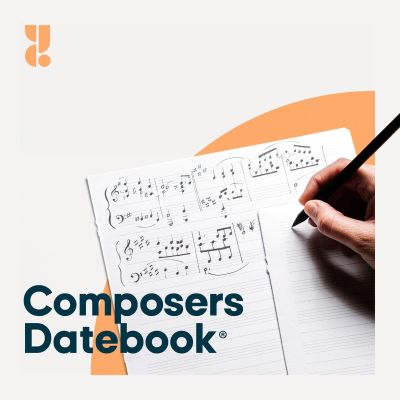Composers Datebook™ is a daily two-minute program designed to inform, engage, and entertain listeners with timely information about composers of the past and present. Each program notes significant or intriguing musical events involving composers of the past and present, with appropriate and accessible music related to each.
Gould at West Point
In 1952, the West Point Military Band celebrated that famous military academy’s Sesquicentennial by asking prominent composers to write celebratory works to mark the occasion. Among those who responded with a new piece was the American composer Morton Gould, whose “West Point Symphony” received its premiere performance on today’s date in 1952, at a gala concert featuring the West Point Academy Band conducted by Francis E. Resta. There are two movements in Gould’s “West Point Symphony.” They are titled “Epitaphs” and “Marches,” and the composer himself provided these descriptive comments: “The first movement is lyrical and dramatic… The general character is elegiac. The second and final movement is lusty… the texture a stylization of marching tunes and parades cast in an array of embellishments and rhythmic variations… At one point,” concludes Gould, “there is a simulation of a Fife and Drum Corp, which, incidentally, was the instrumentation of the original West Point Band.” Of all the pieces written in honor of West Point’s Sesquicentennial in 1952, Gould’s Symphony is probably the best-known. The score of the West Point Symphony calls for a “marching machine,” but on this classic 1959 recording under the late Frederick Fennell, the required sound was provided by the very real marching feet of 120 Eastman School of Music students.
